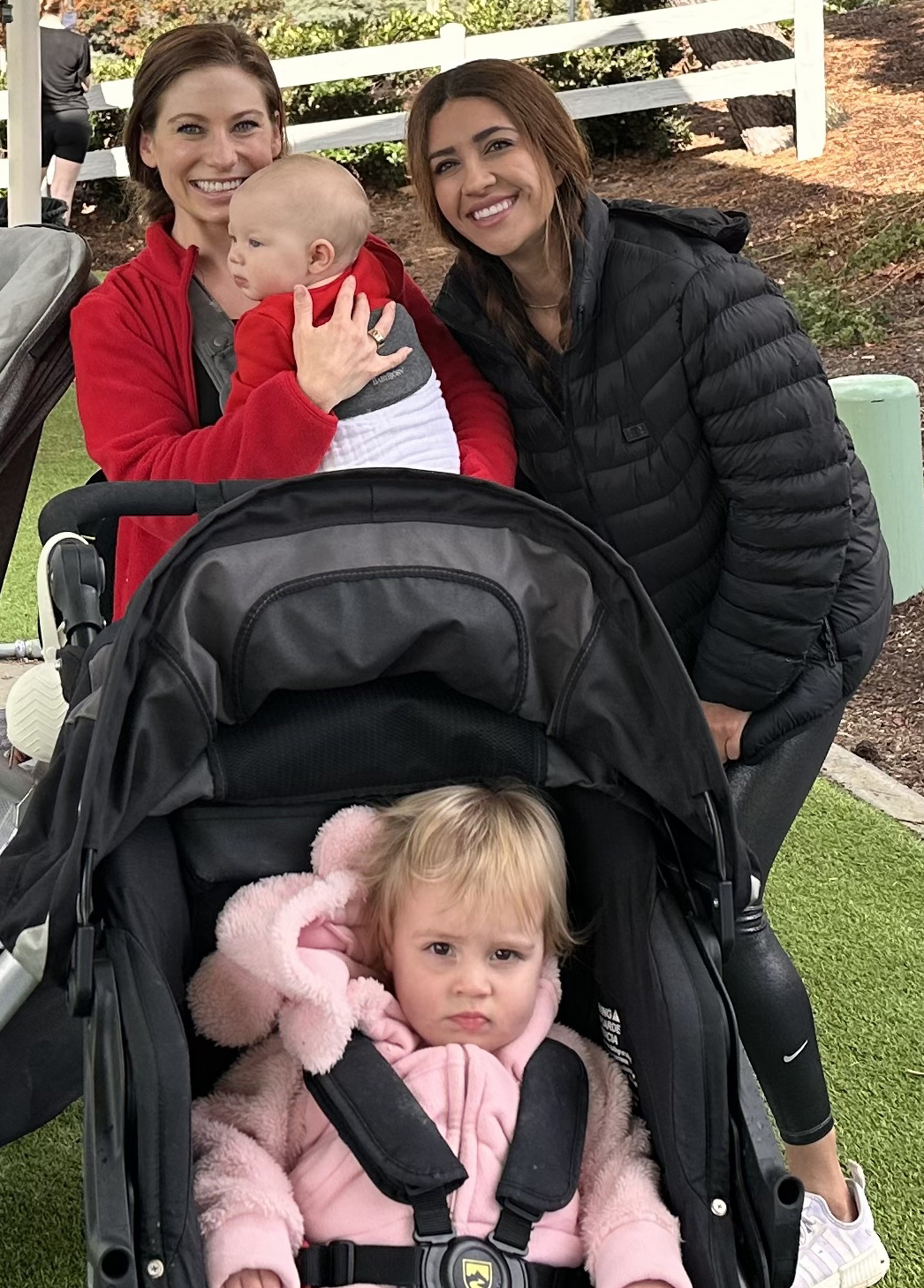Saving Baby Reya

Posted
27 Feb 24
USC dental student uses training from being a member of the Dr. STAT/IV team — a team of 20 to 30 third- and fourth-year dental students trained to administer anesthesia, nitrous oxide and perform life-saving first aid care at the dental school — to save infant’s life in baby-and-mother fitness class.
ON A CRISP DECEMBER MORNING, Blake Robbie gently secured her six-month-old daughter, Reya, into her stroller, preparing for their routine Fit4Mom class at Cox Park in Ladera Ranch, Calif. Little did she know that the next time Reya ventured out, Robbie would find herself desperately seeking life-saving help for her infant daughter.
After their 60-minute fitness class, which incorporates the stroller into the exercise routine, Robbie and the other mothers headed to the park’s playground to let the children socialize. It was there Robbie noticed Reya, who was crawling just steps away, crunch into a dried leaf she picked up and began smacking her lips.
“I tried to pull the leaf out of her mouth, but I couldn’t see it anymore and she started gagging and turning red,” Robbie says. “Once the gagging stopped, I realized she was beginning to choke, and I knew that every moment was vital,” Robbie says.
Robbie yelled out for help to the group of mothers who started calling 9-1-1, while another began first aid back blows, which requires holding a choking baby face down at an angle and hitting them firmly between their shoulders to dislodge airway blockage.
After a few back blows, Robbie’s panic escalated as Reya still wasn’t breathing, and her face began losing color.
Ostrow Student to the Rescue
Moments later, Deena Fatehi ’20, DDS ’24, who attended the same fitness class with her 15-month-old daughter, Rylee, for the first time that day, calmly inserted herself. Fatehi, who had completed her CPR recertification just one week prior, noticed the back blows were not hard enough when she decided to take over.
“It had been about 45 seconds of the baby not breathing, so I was worried that at any moment she could turn blue, and I would have to initiate CPR,” Fatehi says. “I just focused on doing everything I was taught in training to get her to breathe again and hoped it wouldn’t have to get to that.”
After about 20 firm back blows, Fatehi finally heard Reya cry out, a sound she was relieved to hear because she knew that it meant her airway was open.
“The moment Deena arrived to help I felt reassured everything was going to be ok,” Robbie says. “I’m so grateful she was there; she saved Reya’s life. She’s inspired me and other moms to take a first-aid class.”
In addition to CPR certification required for dental students, Fatehi credits her training as a member of the Dr. STAT/IV team for giving her the confidence to step in. The team is made up of 20 third- and fourth-year dental students who are trained to administer local anesthesia, nitrous oxide and provide initial emergency medical response at Ostrow.
“As a healthcare professional, I’m glad I was there for the baby during those critical minutes, but as a mother, I try not to think of what would have happened if I hadn’t been there that day.” Fatehi says.
The Responsibility to Step Up
Fatehi got involved in Dr. STAT/IV because she appreciates the intensity, quick thinking and reassurance she can give people in emergency situations.
“During my pregnancy, I was at the USC Village, and I got really dizzy and started seeing black. I was so scared and worried about the baby, so I just laid down,” Fatehi says. “A Dr. STAT member happened to see me and quickly came up and kept repeating that I was going to be OK. Afterward, I knew I wanted to be able to provide the same level of comfort to others.”
Ostrow’s Dr. STAT/IV members are also required to certify in Advanced Cardiovascular Life Support (ACLS) and Pediatric Life Support (PALS), which Fatehi completed just four weeks after giving birth to Rylee.
“The training to be part of the Dr. STAT team helps prepare us — not just for what happens in dental practices, but in everyday life,” Fatehi says.
“Few people are equipped to handle life-threatening situations, and, as healthcare professionals, we have the responsibility and the skill to do so safely.”